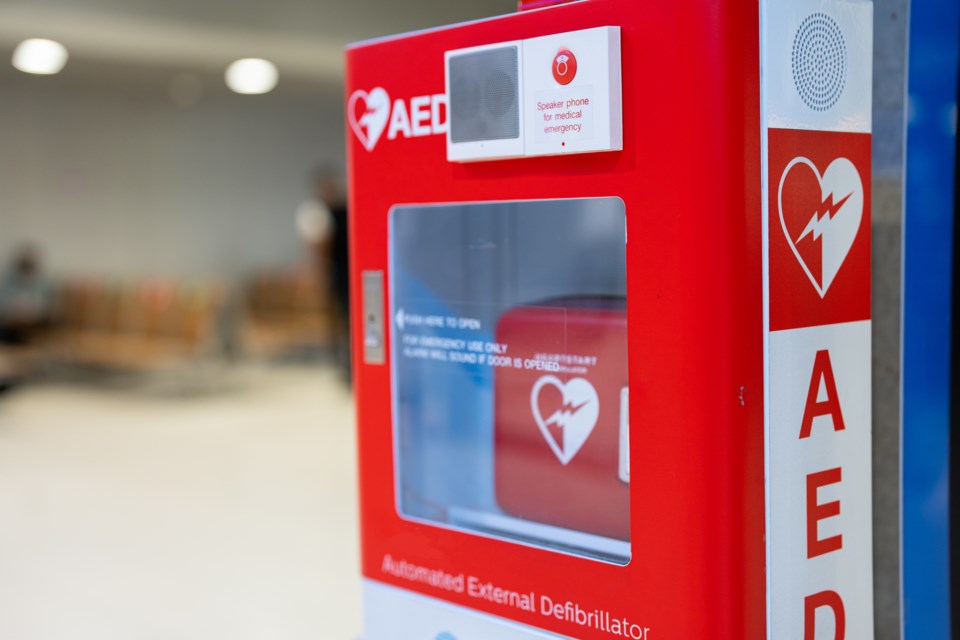Automatic external defibrillators (AED) and naloxone kits could be introduced to all Richmond schools.
Wednesday's Richmond school board meeting had some school trustees concerned about legal implications for students and staff to have access to AEDs and naloxone kits in schools.
However, Trustee Ken Hamaguchi disagreed.
"If they can have (AEDs) at ice arenas, then I can justify putting it in schools," said Hamaguchi.
"We're always in fear of litigation (that) we're going to get sued. I don't want someone to pass away and say 'At least we're not going to get sued.'"
He highlighted students and staff would be protected under the Good Samaritan Act during emergencies.
The motion to consider whether opioid overdose-reversing kits and defibrillators are needed in schools was brought forward by Trustee Debbie Tablotney, who lost her 36-year-old son, Curtis, due to a toxic drug overdose one year ago.
AEDs are portable devices that can analyze a heart's rhythm and deliver an electric shock to re-establish the heartbeat during a sudden cardiac arrest. At the same time, naloxone kits are used to help reverse an opioid overdose.
Trustee Alice Wong questioned why it would be necessary for students and staff to have access to naloxone kits in schools when they are free and accessible at local drug stores such as Shoppers Drug Mart.
"Why do we need it in public schools as a risk?" asked Wong. She highlighted the "recommended age" for training for naloxone kits was 18 to 25.
Tablotney said the motion is not specifically about training for the kits. Rather, it is about taking preventative measures to save a life.
"You don't need to be 18 to overdose. When someone is in an overdose, they are slumped over and cannot administer naloxone themselves," she said.
Tablotney added if naloxone is administered to an individual who is not having an opioid overdose it "does no harm."
Meanwhile, Trustee Rod Belleza was concerned about legal obligations if students or staff would need to use an AED or administer naloxone.
"There could be some kind of negligence. There could be a liability against the district," said Belleza.
If AEDs and naloxone kits were to be introduced to schools, students and staff would require training as well.
Tablotney said both cardiac arrest and overdose incidents are unexpected and can happen anytime.
"It is important these (naloxone) kits be accessible and people know how to use them," she said.
"This overdose crisis is the leading cause of unnatural cause of deaths in children under 18, which is astounding. This should not be happening."
Tablotney added kits are free and the school district should be able to receive them for little cost and with training.
"I think students could benefit from learning about naloxone kits through the school system and their classrooms.
"You never know who you’re going to save, but if we can save a life we should."
The item is being sent to staff for study who will report back to the school board.
Got an opinion on this story or any others in Richmond? Send us a letter or email your thoughts or story tips to [email protected].



